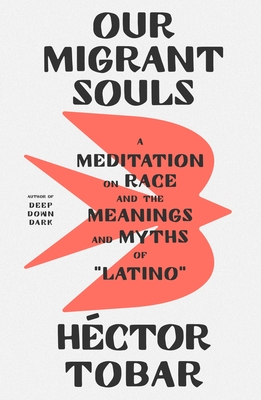Prologue: Our Migrant Souls
byPrologue: Our Migrant Souls delves into the layered and diverse histories of individuals from various Latin American backgrounds, exploring how migration impacts their identities and experiences. The narrative begins with the author’s interaction with a young woman who carries a unique blend of heritage from Honduras, Mexico, and Puerto Rico. This woman, who is undocumented, opens up about her journey, revealing the complex realities of her life as an immigrant. Her struggles, including the emotional toll of being in an undocumented relationship, memories of family tension, and the hardships of living in a car, speak volumes about the personal sacrifices often made in the pursuit of a better future. Through her story, the author captures the emotional journey of migration, highlighting the pain and resilience woven into the immigrant experience, especially for those living in the shadows of society.
As the young woman reflects on her family’s history, the author explores the intersection of African, Indigenous, and European roots that shape her identity. This rich cultural heritage is evident in her experiences and appearance, providing a much deeper understanding of her complex identity. The author critiques how terms like “Latino” and “Hispanic” fail to encompass the full scope of Latinx experiences, which go beyond these simplified labels. These terms often overlook the multifaceted nature of Latino identities, reducing them to categories that fail to recognize the history, struggles, and cultural richness embedded in the lives of individuals. The author calls attention to how these labels mask the stories of migration, resilience, and survival, diminishing the depth of history that shapes each individual’s identity.
The prologue expands on how mainstream narratives contribute to the harmful stereotypes often placed on Latinx people. The portrayal of Latinx individuals as low-skilled laborers strips away their humanity and contributions to society. These stereotypes not only misrepresent the diversity of the Latinx community but also perpetuate societal prejudices. The author shares personal insights from their own family’s migration journey, emphasizing the pride their family takes in their cultural heritage despite the prejudice they face. This reflection highlights the strength required to maintain one’s identity in a world that often reduces people to labels based on race or immigration status. It also calls for a deeper examination of what it means to be a community, advocating for the recognition of the shared history and struggles that define Latinx identity.
Through academic analysis and personal narrative, the prologue highlights the importance of connecting individuals to their collective heritage, which has been shaped by both hardship and resilience. The author encourages readers to acknowledge the strength found in the shared experiences of migration, the emotional toll it takes, and the pride that emerges from it. The chapter underscores that migration is not just about relocating to a new country; it is a transformation that deeply affects personal identity. As the author reflects on the migrant experience, they emphasize the need for society to honor the complexities and contributions of immigrants, recognizing that each person’s journey is part of a much larger, ongoing story. This shared experience unites the Latinx community, as individuals continue to navigate the challenges of migration while holding on to their cultural values and dreams for a better future.
In conclusion, the prologue makes a call for a broader, more empathetic understanding of Latinx experiences in America. The chapter argues for the recognition of the Latinx identity as multifaceted, shaped by history, resilience, and a deep connection to cultural roots. The author’s narrative emphasizes the importance of understanding the migrant experience not as one of mere survival, but as one of strength, dignity, and the pursuit of dreams in the face of adversity. This prologue urges readers to rethink how Latinx people are portrayed in society and to recognize the depth and complexity of their stories. It is a call to move beyond stereotypes, offering a deeper appreciation for the struggles and triumphs that come with migration, identity, and belonging in a new land.

